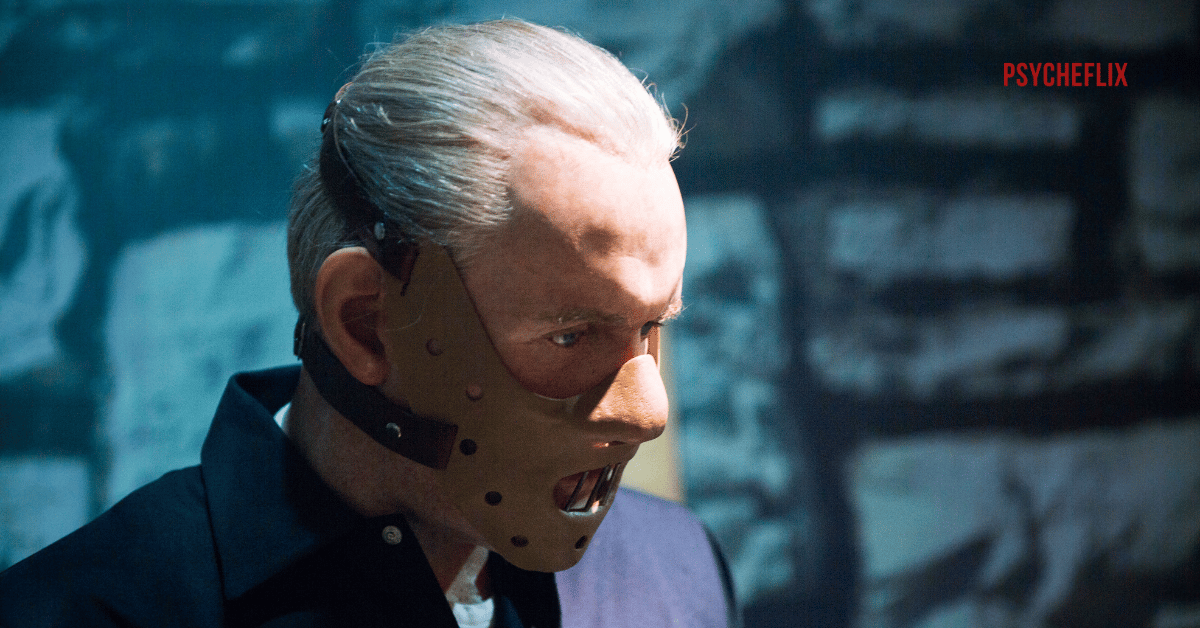What if the most dangerous predator wasn’t hiding in the shadows but sitting across from you at dinner, pouring your wine, and quoting Dante in flawless Italian?
Hannibal Lecter is not a madman. He is not a typical psychopath driven by impulse or compulsion. He is something far older, something deeply embedded in the fabric of human evolution. In Hannibal (2001), Anthony Hopkins portrays a creature who has shed the weaknesses of morality and inhibition, revealing what happens when a mind retains a predator's raw efficiency while possessing a human's intelligence.
Ridley Scott’s film transforms Lecter into an apex hunter who has adapted perfectly to civilization. His intellect functions as camouflage, his charm as a lure. He selects prey carefully, manipulates the environment to his advantage, and effectively eliminates threats. His relationship with Clarice Starling (Julianne Moore) is not about dominance or revenge. It is about recognition. He sees something most people lack in her—the ability to transcend limitation.
Hannibal does not kill indiscriminately. He hunts with purpose.
"Whenever feasible, one should always try to eat the rude."
Quit Smoking with Qwitly
Available in: California, Connecticut, Kansas, Maryland, New York, Ohio, Texas
The Evolution of a Predator: Hannibal’s Place in the Natural Order
Predatory instincts evolved out of necessity. Survival favored those who could plan, track, and strike with efficiency. Over time, human society suppressed these instincts, creating a structure built on cooperation and inhibition. Civilization thrives by encouraging restraint. Hannibal Lecter is an anomaly. He represents a mind where these evolutionary safeguards never developed—or, perhaps, were deliberately abandoned.
1. Camouflage: The Predator’s Cultural Disguise
A tiger in the jungle relies on its stripes to disappear into tall grass. A cuttlefish shifts its colors to blend into coral. Hannibal Lecter uses refinement as his disguise. He speaks several languages fluently, easily quotes literature, and moves through high society effortlessly. People do not see a monster because their perception is clouded by sophistication.
Florence provides him with the perfect hunting ground. As Dr. Fell, he infiltrates academia, using his vast knowledge as a shield. His ability to adapt makes him nearly invisible. Those around him do not sense danger because he has crafted an identity that appeals to human vanity.

Hannibal Lecter
2. A Mind Without Inhibition
Evolution shaped the human brain to include both impulse and restraint. The prefrontal cortex developed as a mechanism to suppress primal urges, allowing for cooperation, empathy, and social stability. Hannibal Lecter appears to have bypassed this system. He does not lack intelligence or control. He lacks the need for inhibition.
Most serial killers act on compulsion. They kill because they cannot stop themselves. Hannibal kills because he chooses to. This distinction is critical. His decisions do not arise from emotion or necessity. He eliminates those who offend his sense of order, those who prove themselves unworthy. The act is not a loss of control. It is an expression of it.
Paul Krendler (Ray Liotta) does not simply die. He is prepared, seated at a table, and served his own brain in an orchestrated act of aesthetic predation. The event is not an act of sadism for its own sake. It demonstrates dominance, a reminder that Hannibal exists outside of normal constraints.
3. Clarice Starling: The Evolutionary Divergence
Hannibal’s fascination with Clarice is not rooted in romance or conquest. He views her as something rare—a potential equal. He does not see her as prey but as a possible predator-in-the-making.
Unlike most of society, Clarice possesses an acute sense of justice and survival. She recognizes the danger. She resists manipulation. Hannibal respects her because she operates at a higher level than those around her. He does not want to destroy her. He wants to awaken her.
When he offers her the opportunity to leave the confines of morality, it is not deception. It is a test. He presents her with a choice: remain bound by human limitation or step into a world where inhibition no longer exists.
For a moment, she hesitates.
Hannibal Lecter: A Regression or an Evolutionary Step?
Hannibal’s mind does not function like a normal human’s. He exhibits extreme intelligence without the evolutionary brakes that shape most social behavior. His instincts resemble those of a lone hunter, a being who exists outside of the herd.
The horror of Hannibal (2001) is not just that Lecter exists. It is that he thrives. He is not an error in evolution. He is a reminder that civilization does not erase predation. It only masks it.

Facing an Existential Crisis? Discover Clarity and Purpose with 4MEIA’s Personalized Assessment!
The Psychopath Inside: A Neuroscientist’s Personal Journey into the Dark Side of the Brain – James Fallon
The Murderer Next Door: Why the Mind Is Designed to Kill – David M. Buss
The Gift of Fear: Survival Signals That Protect Us from Violence – Gavin de Becker

The content on PSYCHEFLIX is for informational and entertainment purposes only and is not intended as medical advice. Always consult a healthcare provider for diagnosis and treatment. Reliance on any information from this blog and newsletter is solely at your own risk.
This newsletter may include advertisements and affiliate links. We earn commissions from purchases made through these links, supporting our mission to provide you with valuable content.

